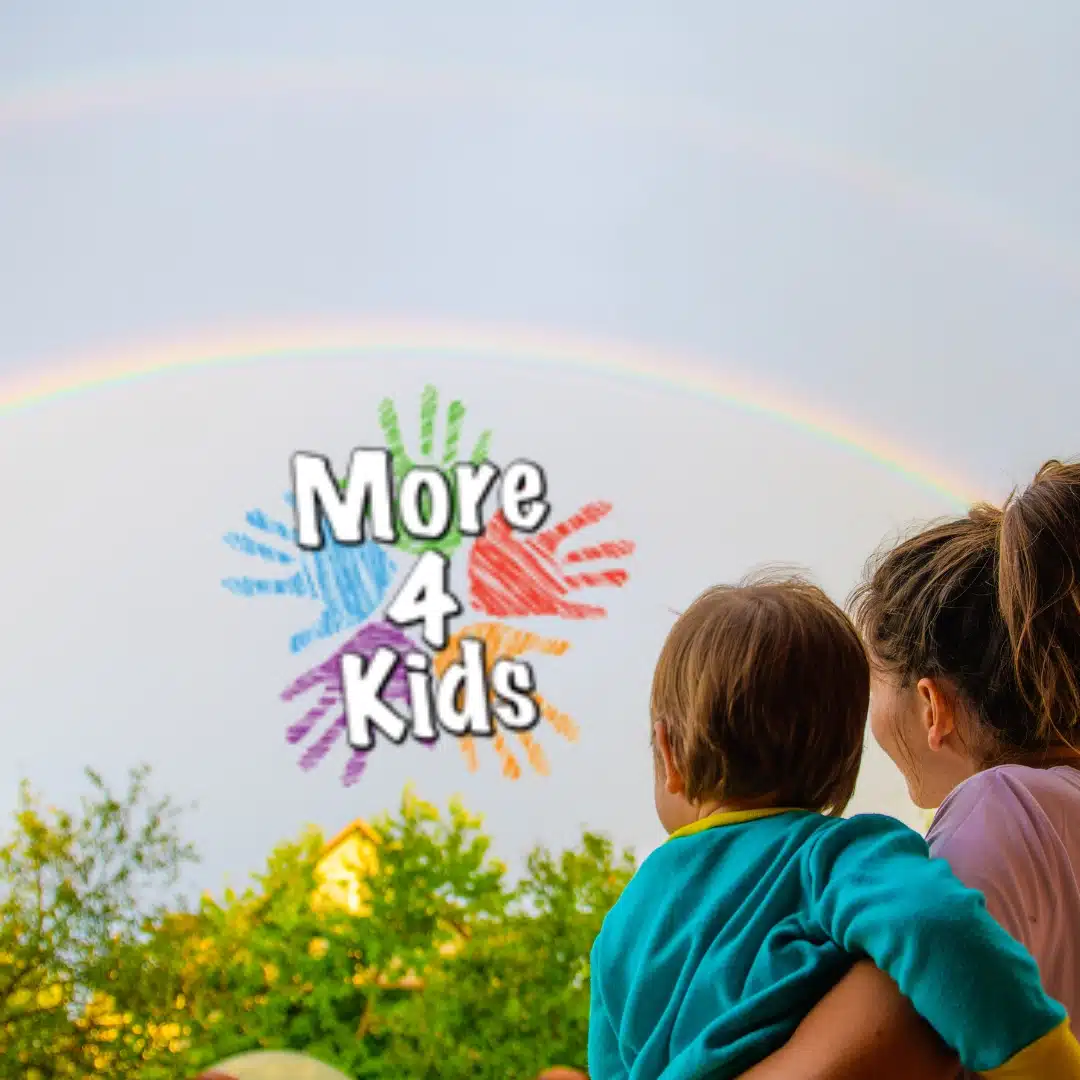Raising kids is an incredible journey, filled with joy, excitement, and challenges. As parents, we want nothing but the best for our children. We want them to be happy, healthy, and successful. But how can we ensure that they achieve their full potential? One way is by cultivating an abundance mindset.
In this article, we’ll explore what the abundance mindset is, why it’s important for raising amazing kids, and how you can cultivate it in yourself and your children. By the end of this article, you’ll have the tools you need to raise confident, resilient, and successful kids.
What is the Abundance Mindset?
Table of Contents
The abundance mindset is a way of thinking that focuses on the limitless possibilities and opportunities available to us. It’s the opposite of a scarcity mindset, which is characterized by fear, anxiety, and a belief that there is not enough to go around.
With an abundance mindset, we believe that there is enough to go around for everyone. We see the world as a place of infinite possibilities, and we approach challenges with a sense of curiosity and optimism. We focus on what we have, rather than what we lack, and we are grateful for the abundance in our lives.
Is Scarcity Mindset the Same as Fixed Mindset?
While consensus varies, I see them as slightly different. Yet it’s important to overcome both to gain an abundance mindset. Here’s what I mean…
While the scarcity mindset believes there’s “not enough to go around,” the fixed mindset is the belief that our abilities and intelligence are fixed traits that cannot be changed. This fixed mindset, then, is characterized by a fear of failure, a lack of motivation to take on new challenges, and a focus on outcomes as a measure of success.
One of the key differences between people with the abundance mindset and those with the fixed mindset is the way that they view challenges and setbacks. For someone with an abundance mindset, challenges and setbacks are seen as opportunities for growth and learning. They believe that they can develop their abilities through effort and practice, and that even if they fail, they can learn from their mistakes and improve in the future.
In contrast, someone with a fixed mindset may see challenges and setbacks as evidence of their limitations. They may believe that they either have the ability to succeed or they don’t, and that failures are a sign of their inherent flaws. They consider their abilities and intelligence as fixed traits that cannot be changed or improved upon. When children develop a fixed mindset, they may believe that their abilities are predetermined and that they cannot change or grow. This can lead to a fear of failure and a reluctance to take on new challenges, as they may see these as threats to their self-image.
Problems with a Fixed Mindset
One of the biggest problems with the fixed mindset when raising children is that it can lead to a lack of resilience. When children believe that their abilities are fixed, they may give up easily when faced with a challenge or setback. They may see failure as evidence of their limitations, rather than an opportunity for growth and learning. This can lead to a lack of perseverance and a tendency to avoid challenges. This limits a child’s potential.
The fixed mindset can also lead to a lack of self-confidence. When children believe that their abilities are fixed, they may compare themselves to others and feel that they fall short. They may believe that others are inherently better than them and that they will never be able to measure up. This can lead to a lack of self-esteem and a negative self-image.
Another difference between the abundance mindset and the fixed mindset is the way that they view success. For someone with an abundance mindset, success is not just about achieving a particular outcome, such as getting a good grade or winning a competition. Instead, success is seen as the result of effort, persistence, and a commitment to learning and growth.
In contrast, someone with a fixed mindset may view success as something that is determined by their innate abilities or intelligence. They may believe that success is something that they either have or they don’t, and that it is not within their control.
The abundance mindset focuses more on effort and intent than end results.
Overall, the abundance mindset is characterized by a belief in the power of effort and learning, a willingness to take on new challenges, and a resilience in the face of setbacks. In contrast, the fixed mindset is characterized by a belief in innate abilities, a fear of failure, and a focus on outcomes as a measure of success. By cultivating an abundance mindset in ourselves and our children, we can develop a love of learning, a resilience in the face of challenges, and a motivation to reach our full potential.
Which leads us to…
Why is the Abundance Mindset Important for Raising Amazing Kids?
The abundance mindset is important for raising amazing kids because it helps them develop a positive attitude towards life. When children believe that there is enough to go around and that anything is possible with effort and growth and learning, they are more likely to take risks, try new things, and pursue their dreams. They are less likely to be held back by fear or a sense of limitation.
In addition, the abundance mindset helps children develop resilience. When children face challenges or setbacks, they are more likely to bounce back if they believe that there are always more opportunities and possibilities available to them. They are less likely to give up or feel defeated. And they’re more willing to fail, learn from it, and try again.
Finally, the abundance mindset helps children develop gratitude. When children focus on what they can accomplish with effort and learning, they are more likely to appreciate the abundance in their lives. They are less likely to take things for granted or feel entitled.
How to Cultivate the Abundance Mindset in Yourself and Your Children
Cultivating the abundance mindset takes practice, but it’s worth the effort. Here are some tips for cultivating the abundance mindset in yourself and your children:
Practice Gratitude

In our home, we did the “three roses and the thorn” at the dinner table. Each person would tell us about her day and say the three blessings or great things and the one sticking point or problem. We’d talk about both and have a plan for the next day. This gave my daughter and our foster kids something to look forward to as they implemented new ideas. It also expanded the ability to brainstorm and appreciate other’s perspectives.
Focus on Possibilities
When we focus on possibilities, we open ourselves up to new opportunities and experiences.
Encourage your children to think creatively and explore new ideas. Ask them questions like “What if?” and “Why not?”
As a professor, I embraced the “What else?” philosophy, asking it until my students or my children ran out of answers. When they finally said, “I don’t know,” I’d usually laugh. They’d come up with more ideas than I had. “Me neither,” I’d say. “I’m really interested in all those ideas you’ve come up with. Let’s discuss why we think (this one) is the best option.”
Embrace Failure
Failure is a natural part of the learning process. When we embrace failure, we learn from our mistakes and grow stronger. Encourage your children to take risks and try new things, even if they might fail.
Let them know that it’s okay to make mistakes and that they can learn from them. Encourage them to reflect on what they learned from their failures and how they can use that knowledge to succeed in the future. This can help them develop resilience and a willingness to persevere in the face of challenges. It’s also the epitome of the difference between abundance and fixed mindsets. Children with fixed mindsets stop at “I can’t do that” or, once they’ve failed, “I’m just not good at that.” They never allow themselves the option to try.
It’s best, I think, to allow children to fail when they’re young. While it may cause a temper tantrum initially, they learn to control their feelings and work through the frustration to the other side where learning and collaboration await.
Encourage Collaboration
Collaboration is a key component of the abundance mindset. When we work together, we create more than we could on our own. Encourage your children to collaborate with others and share their ideas.
Lead by Example
As a parent, you are a role model for your children. Cultivate the abundance mindset in yourself and your children will follow suit. Show them that you believe in the limitless possibilities of life, and they will too.
Be positive and optimistic, even in the face of challenges. Use powerful, affirming words, instead of shaming or discouraging ones. Your child … even you … are NOT a failure. You failed at something you attempted. If it’s worthy of your time, learn from it and try again.
We saw the perfect example of this recently when my nephew took his pilot’s license test. He failed. He instantly negated the years he’d dreamed of being a pilot, the work he’d put in thus far, and his brain took him to “I can’t do this.” It was a talk with my daughter that turned him around.
“Congratulations! That’s awesome,” my daughter told her cousin. “What’d you learn?”
Turns out, upon reflection once he was allowed to process the sorrow, he was able to identify the section in the study guide he needed to review. He put in the effort and passed the test the following week. He’s on his way to fulfilling his dream.
But my daughter? She called me and said, “Gosh, Mom. I’m glad I didn’t grow up with that kind of negativity. Thank you.”
That meant so much to me. My parents were smart people, the first in either family to graduate college. But they didn’t have an abundance mindset. I did that. I made that generational change that, I hope, will hold my daughter and her descendants in good stead forevermore. You can, too.
Focus on the good things in your life and express gratitude for them. Encourage your children to pursue their passions and dreams and support them in their efforts. This can help them develop a sense of self-efficacy and a belief in their own abilities.
My daughter supported my efforts to become an entrepreneur, a best-selling author, a screenwriter, a travel writer, a course creator, and a coach. Once she left for college, she was especially invested in getting me “back out” into the world. It’s not that my focus was scattered. It’s that I wanted to try new things and my varied interests led from one to another.
As a mom with a LOT of student loan debt, finances were a struggle for a long time. I went back to college, as a senior medical resident, to get my loans back in deferment. I took up travel writing, as an attending physician, both for the switch to right brain creative writing and to help with household expenses while I worked two medical jobs to pay for my daughter’s college and graduate school expenses.
It was not about “I can’t afford it” any more. It was “How can I afford it.”
Sometimes it’s simple. It’s just not easy.
Abundance Mindset: A Real Life Example
Here’s an explanation I like to use to explain the difference between fixed and abundance mindset when it comes to praising a child’s grades vs praising a child’s efforts:
When we have a fixed mindset, we believe that our abilities and intelligence are fixed traits that cannot be changed. This can lead us to focus on outcomes, such as grades, as a measure of our success. When we praise a child’s grades, we are reinforcing the idea that success is determined by our abilities and that we are only worthy of praise if we achieve a certain level of success.
This can lead to a fear of failure and a lack of motivation to take on challenges.
On the other hand, when we have an abundance mindset and embrace the abundance mindset, we believe that our abilities and intelligence can be developed through effort and learning. This leads us to focus on the process, such as the effort that we put in, as a measure of our success. When we praise a child’s effort, we are reinforcing the idea that success is determined by our willingness to take on challenges and our commitment to working hard. This can lead to a sense of resilience and a motivation to take on new challenges.
When it comes to praising a child’s grades vs praising a child’s efforts, it’s important to focus on the effort that they put in rather than the outcome. Praising a child’s grades can reinforce the fixed mindset, while praising their efforts can encourage a growth mindset. For example, instead of saying “Great job on getting an A,” you could say “I’m proud of how hard you worked to achieve that grade.” This reinforces the idea that success is determined by effort, rather than innate ability.
Wrapping Up – The Abundance Mindset and Your kids
In conclusion, developing an abundance mindset is a powerful tool for raising amazing kids. By focusing on possibilities, practicing gratitude, embracing failure, encouraging collaboration, and leading by example, we can help our children develop a positive attitude towards life and achieve their full potential. By fostering an abundance mindset, we can help our children reach their full potential and lead fulfilling lives.
Remember, having an abundance mindset is not about denying the challenges and limitations of life. It’s about recognizing them and choosing to focus on the possibilities and opportunities that exist alongside them. By cultivating the abundance mindset in ourselves and our children, we can create a brighter, more fulfilling future for all.
By incorporating these tips into your parenting approach, you can help your children develop an abundance mindset that will serve them well throughout their lives.


















Add Comment